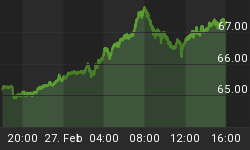It seems that we have once again reached the point where pessimists and optimists are clashing over the direction of the US economy. Eight years ago I wrote that though the demand for labour had "started to fall in manufacturing while still expanding in consumer or consumer related industries. This sectional employment fall, I believe, is one of the danger signals". (The New Australian, Is the American boom beginning to crack?, No. 104, 25 January 1999). And crack it did.
Now to some statistics. The Institute of Supply Management's (always a valuable source of information) manufacturing index recovered showed that US manufacturing index had jumped from 49.6 in January to 54.1 in February. (Anything above 50 indicates expansion). For the same period new orders went from 50.3 to 54.9 while the jobs index rose from 49.5 to 51.1. As I pointed out last week, manufacturing is not signalling recession -- at least not yet. I am assuming, of course, that Bernanke is not about to slap on the monetary brakes. This assumption was fortified by his expression of public concern about the state of the US housing market which he claimed had been the main source of economic growth since last spring.
However, it's a myth that housing or any other kind of consumption good can ever be a source of economic growth. By definition economic growth is forgone consumption. Any economic policy that designed to promote consumption is bound to keep growth lower than it would otherwise be by directing resources way from the higher stages of production. Those who disagree with this view regarding consumption can point to the fact that consumer spending accounts for about 66 per cent of GDP while residential 'investment' represents about four percent of GDP.
The error here is the failure to recognise that GDP is anything but gross. Any approach that ignores intermediary spending (spending between the stages of production) is destined to greatly underestimate the extent of economic activity. Apparently some people in the US Bureau of Economic Analysis have arrived at the same conclusion. The bureau now produces a national income statistic it calls gross output that includes spending on intermediate goods. The Bureau's December 2006 release for gross output revealed that spending for all industries was $22.857 trillion against a GDP of about $13 trillion.
Another error is to call spending on housing an 'investment' instead of consumption. This mistake comes from defining capital goods as durable. It is not durability that defines capital but its function. If a good is used to produce other capital goods or consumption goods it is part of the production structure. My DVDs and books are very durable but that does not make them capital goods.
Therefore it is a fallacy to argue, as does the economic commentariat, that a fall in the demand for housing has a negative impact on the rest of the economy because it reduces the demand for consumer loans. Yet this appalling fallacy is the received wisdom and any one who is rash enough to challenges it is painted as a crank -- irrespective of the strength of his argument. No wonder Bernanke felt comfortable saying that a smooth of credit is "essential for a healthy economy."
With respect to inverted the yield curve read Is the yield curve signalling an impending recession?















